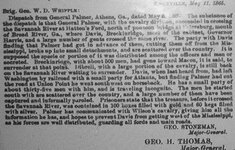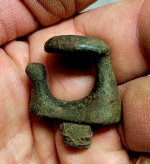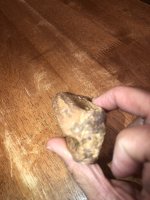godisnum1
Silver Member
- May 7, 2005
- 3,646
- 382
- Detector(s) used
- Nokta Legend Pro Pack, Nokta Legend WHP w/ LG24 coil, Nokta Pulse Dive Pinpointer, White's IDX Pro (x2), Vibraprobe 570
- Primary Interest:
- All Treasure Hunting
Oh, good call! I actually didn't think of that... I happen to know a missionary chap down there who lives on the reservation. I bet he knows some good people I could talk to. It's pretty cool that they don't have to report to the government on things, but rather their tribal counsel. Makes THing alot easier down there I think.
Bran <><
Bran <><


 as I already (earlier) mentioned
as I already (earlier) mentioned


 I got this from a very informative blog I follow about the Treasure Coast. "
I got this from a very informative blog I follow about the Treasure Coast. "



